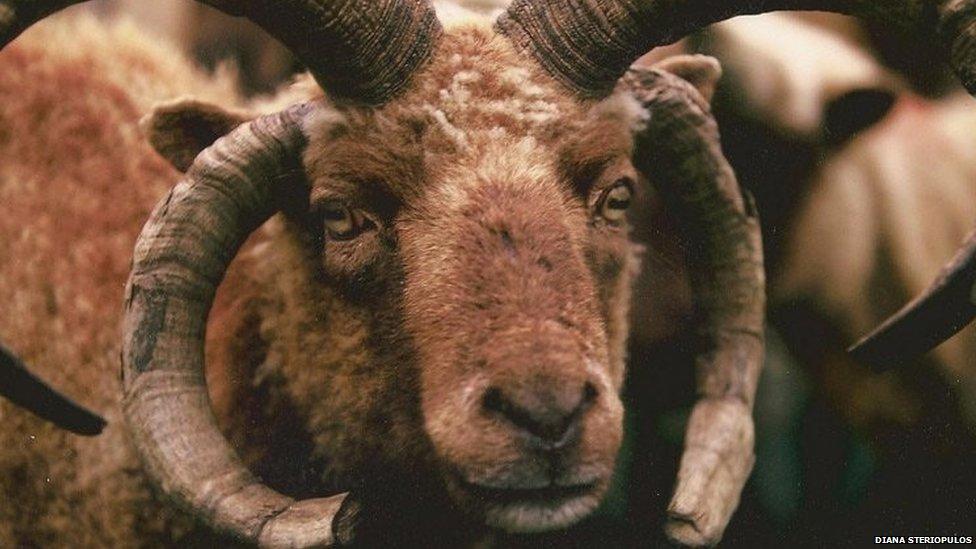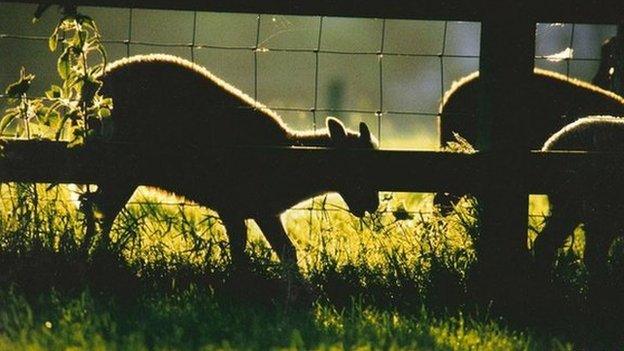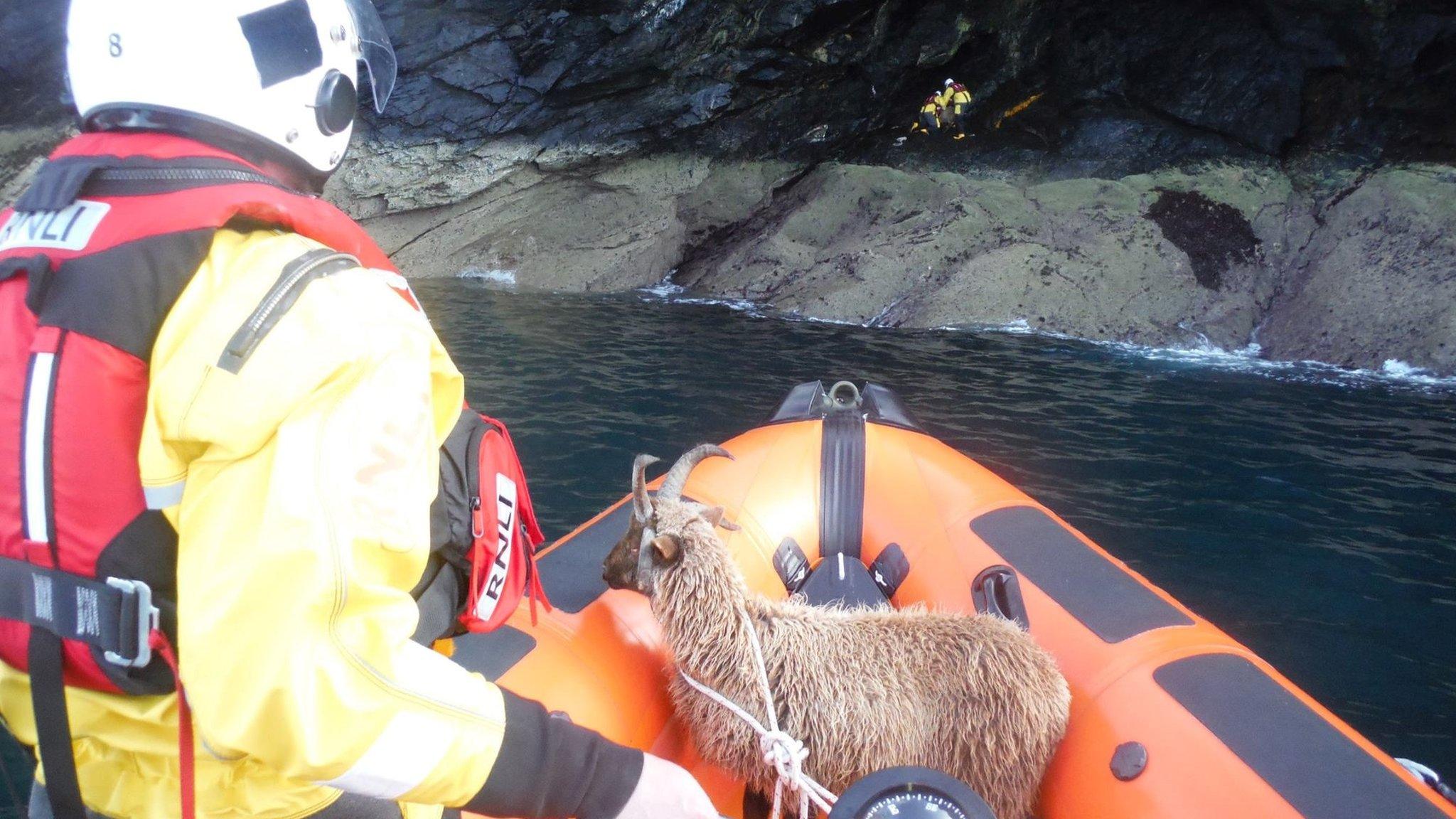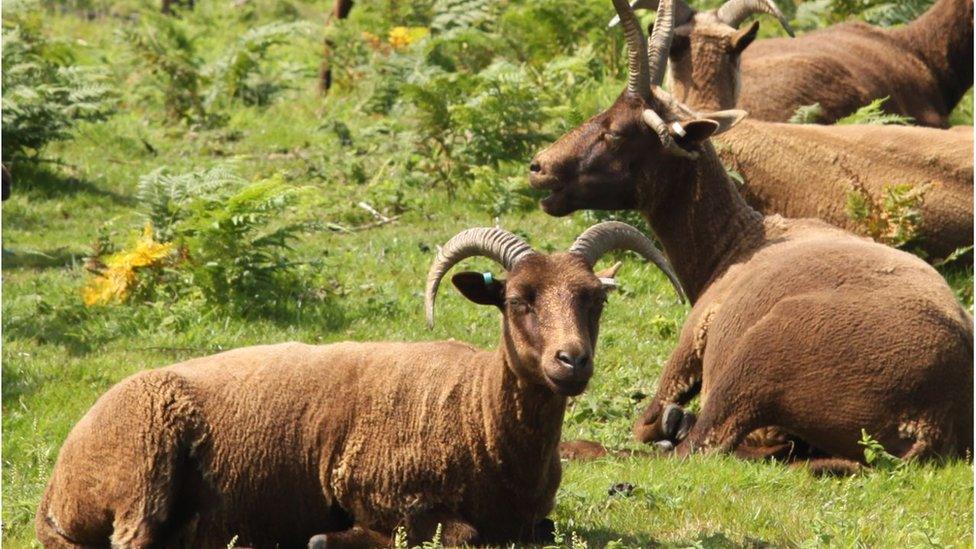Manx Loaghtan: Conference to highlight rare sheep breed
- Published

Both Manx Loaghtan ewes and rams are usually horned, sometimes having four or six horns.
A conference highlighting Northern Europe's native breeds of sheep will see the Manx Loaghtan achieve "greater recognition", organisers have said.
The annual North Atlantic Native Sheep and Wool Conference will celebrate the breed when it is held on the Isle of Man for the first time in October.
Organiser Nicky Pattinson said the breed was a "true emblem" of the isle.
The Manx Loaghtan has seen a revival in recent years, having previously been threatened with extinction.
The distinctive sheep, with their powerful multiple sets of horns and golden brown wool, are classed a "primitive breed", meaning they have not been bred with other types of sheep and have characteristics to fit their environment.
Other primitive breeds, which the conference organisers call "Viking" sheep, include the Soay, the Shetland and the Hebridean.

The breed has evolved to adapt to the challenging Manx weather conditions
They roamed the Manx hills for centuries, but by the 1950s, numbers had declined, due to the introduction of other hill breeds.
However, the dedication of a few enthusiasts meant the breed was saved from extinction and, although still rare, there are now several flocks on the island and in the UK.
More than 170 international delegates are expected at the seventh edition of the conference, which was founded by Norwegian artist Karin Flatoy Svarstad, whose background working with wool led her to establish links across her native country, Shetland, Orkney, the Faroes, Outer Hebrides, Iceland and the Isle of Man.
Mrs Pattison said that along with the boost for the Manx Loaghtan, it was hoped the conference would also "resurrect interest in spinning and weaving, last practiced on any proper scale several decades ago".
- Published8 October 2015

- Published29 October 2015
